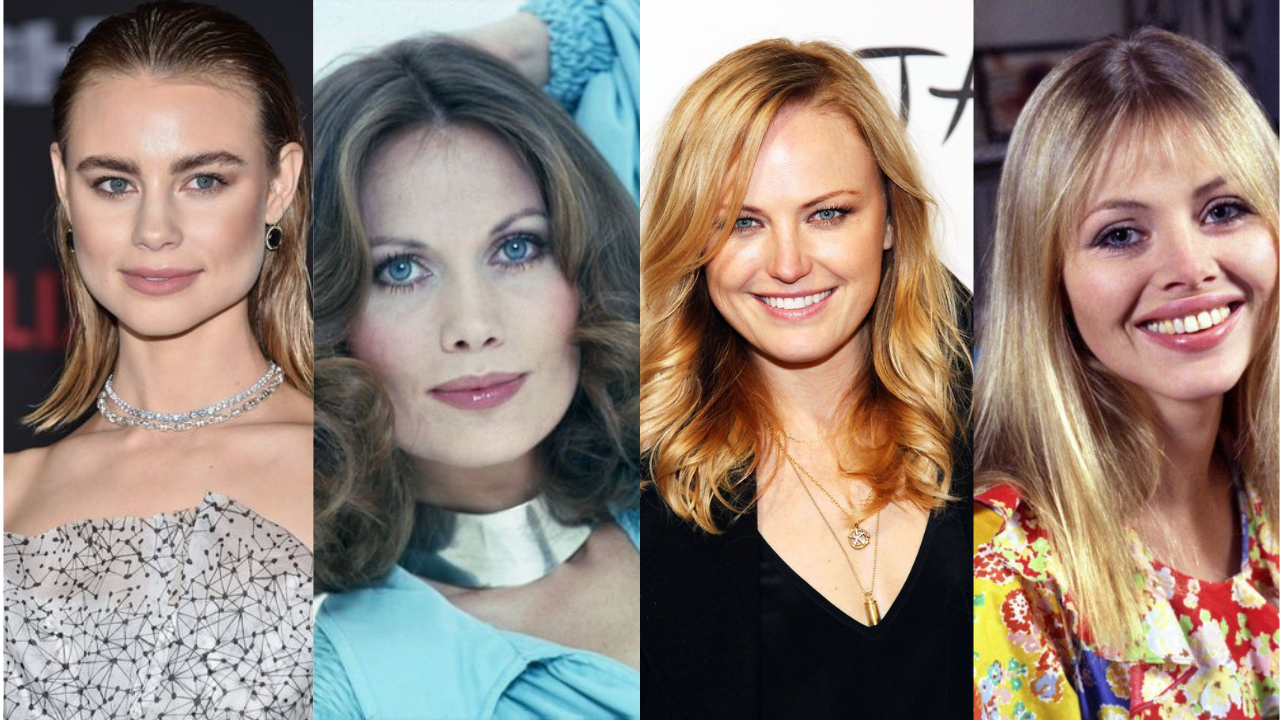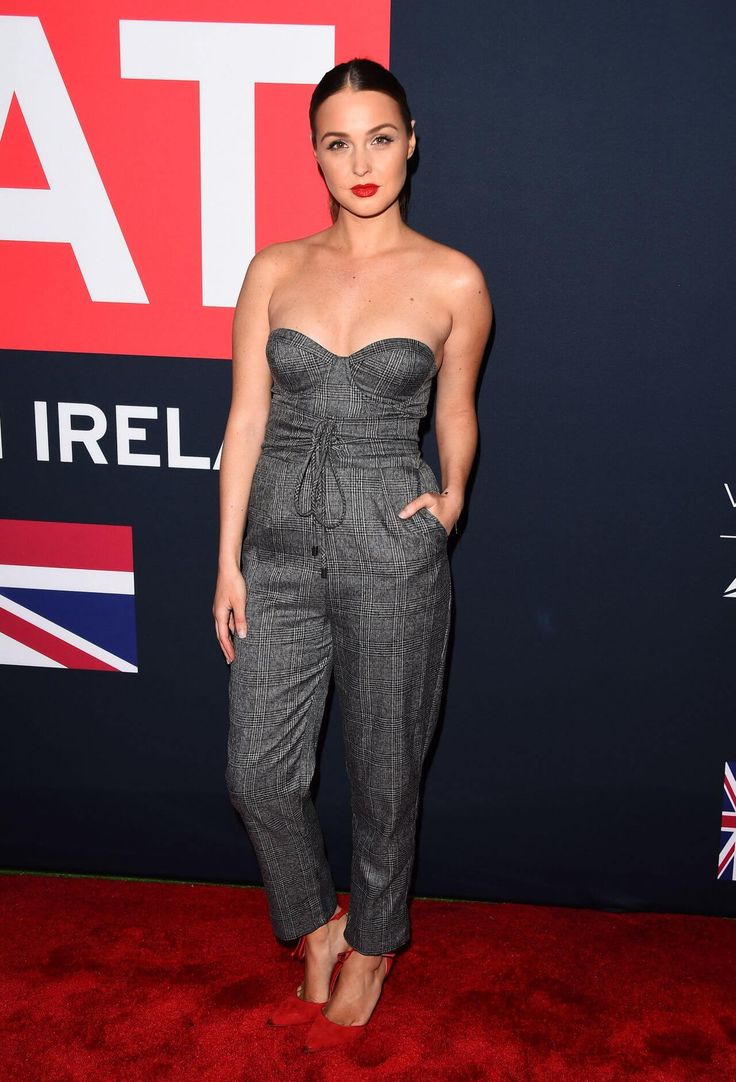Julianne Moore 10 Movies ranked and TV shows
Julianne Moore movies and TV shows explore her remarkable career and find your next favorite film or series. Julianne

Julianne Moore movies and TV shows explore her remarkable career and find your next favorite film or series. Julianne Moore real name is Julie Anne Smith, who was born on December 3, 1960, and is an actress and children’s author from the United States. Since the early 1990s, she has been very active in the film industry, gaining fame for her roles as women facing emotional challenges in independent films, as well as in major box office hits.
Her exceptional talent has earned her a multitude of awards, such as an Academy Award, a BAFTA Award, two Emmys, and two Golden Globes, along with Best Actress honors from prominent film festivals like Cannes, Berlin, and Venice. In 2015, Time magazine listed her among the 100 most influential people globally, and in 2020, The New York Times recognized her as one of the finest actors of the 21st century.
Following her theatre studies at Boston University, she became a regular cast member on the soap opera As the World Turns from 1985 to 1988, where she won a Daytime Emmy Award. Moore gained prominence with her role in Robert Altman’s ensemble film Short Cuts in 1993, and she received critical acclaim for her performance in Todd Haynes’ Safe, released in 1995.
Lead roles in major films such as Nine Months in 1995 and The Lost World: Jurassic Park in 1997 solidified her status as a top actress in Hollywood. She earned Oscar nominations for her performances as a 1970s adult film star in Boogie Nights (1997) and as dissatisfied wives in the period pieces The End of the Affair (1999), Far from Heaven (2002), and The Hours (2002).
Moore’s career continued to advance with significant roles in The Big Lebowski (1998), Magnolia (1999), Hannibal (2001), Children of Men (2006), A Single Man (2009), The Kids Are All Right (2010), Crazy, Stupid, Love (2011), and Maps to the Stars (2014). She was awarded a Primetime Emmy for playing Sarah Palin in the HBO film Game Change (2012) and won the Academy Award for Best Actress for her role as a woman with Alzheimer’s in Still Alice (2014).
Her most commercially successful films include the final installments of The Hunger Games series (2014-2015) and the spy movie Kingsman: The Golden Circle (2017). More recently, she has appeared in independent films and streaming series including the drama May December (2023), the historical miniseries Mary & George (2024), and the black comedy limited series Sirens (2025).
Beyond her acting career, Moore has authored a collection of children’s books featuring a character named Freckleface Strawberry. She is wedded to director Bart Freundlich, and together they have two children.
Read More – Julianne Moore Wiki, Height, Age, Family, Husband, Net Worth and Career
Julianne Moore Movies and TV Shows
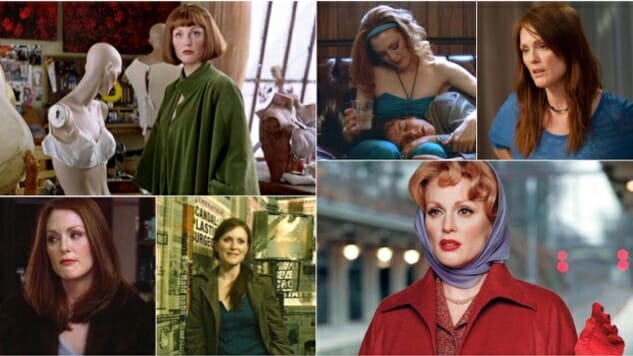
Julianne Moore built her reputation through a range of compelling supporting roles throughout the 1990s. Her major breakthrough occurred with Robert Altman’s Short Cuts in 1993, followed by memorable performances in Vanya on 42nd Street and Safe. By the mid-1990s, leading roles in major films such as Nine Months and The Lost World: Jurassic Park established her as an international star.
She received Oscar nominations for her roles in Boogie Nights, The End of the Affair, Far from Heaven, and The Hours. Other notable performances include her roles in The Big Lebowski, Magnolia, Hannibal, and Children of Men. In the 2010s, she continued to excel with The Kids Are All Right and her acclaimed portrayal of Sarah Palin in Game Change.
In 2014, her role in Still Alice, portraying a linguistics professor diagnosed with early-onset Alzheimer’s, garnered her the Golden Globe, BAFTA, SAG Award, and ultimately her first Academy Award. She appeared in Maps to the Stars and The Hunger Games: Mockingjay – Part 1. She then continued to take on impactful roles, including performances in Wonderstruck, Suburbicon, and Kingsman: The Golden Circle in 2017.
First Film
Her film debut occurred in 1990 with the horror anthology “Tales From The Darkside: The Movie,” where she played the character Susan.
Julianne Moore Movies
| Year | Film |
| 1990 | Tales from the Darkside: The Movie |
| 1992 | The Hand That Rocks the Cradle |
| 1992 | The Gun in Betty Lou’s Handbag |
| 1993 | Body of Evidence |
| 1993 | Benny & Joon |
| 1993 | The Fugitive |
| 1993 | Short Cuts |
| 1994 | Vanya on 42nd Street |
| 1995 | Safe |
| 1995 | Roommates |
| 1995 | Nine Months |
| 1995 | Assassins |
| 1996 | Surviving Picasso |
| 1997 | The Lost World: Jurassic Park |
| 1997 | The Myth of Fingerprints |
| 1997 | Boogie Nights |
| 1997 | Chicago Cab |
| 1998 | The Big Lebowski |
| 1998 | Psycho |
| 1999 | Cookie’s Fortune |
| 1999 | An Ideal Husband |
| 1999 | A Map of the World |
| 1999 | The End of the Affair |
| 1999 | Magnolia |
| 2000 | Not I |
| 2000 | Ladies Man |
| 2001 | Hannibal |
| 2001 | Evolution |
| 2001 | World Traveler |
| 2001 | The Shipping News |
| 2002 | Far from Heaven |
| 2002 | The Hours |
| 2004 | Marie and Bruce |
| 2004 | Laws of Attraction |
| 2004 | The Forgotten |
| 2005 | Trust the Man |
| 2005 | The Prize Winner of Defiance, Ohio |
| 2005 | The Naked Brothers Band: The Movie |
| 2006 | Freedomland |
| 2006 | Children of Men |
| 2007 | Next |
| 2007 | Savage Grace |
| 2007 | I’m Not There |
| 2008 | Eagle Eye |
| 2008 | Blindness |
| 2009 | The Private Lives of Pippa Lee |
| 2009 | A Single Man |
| 2009 | Chloe |
| 2010 | The Kids Are All Right |
| 2010 | Shelter |
| 2011 | Crazy, Stupid, Love |
| 2012 | Being Flynn |
| 2012 | What Maisie Knew |
| 2013 | Don Jon |
| 2013 | The English Teacher |
| 2013 | Carrie |
| 2014 | Non-Stop |
| 2014 | Maps to the Stars |
| 2014 | Still Alice |
| 2014 | The Hunger Games: Mockingjay – Part 1 |
| 2014 | Seventh Son |
| 2015 | Maggie’s Plan |
| 2015 | Freeheld |
| 2015 | The Hunger Games: Mockingjay – Part 2 |
| 2017 | Wonderstruck |
| 2017 | Suburbicon |
| 2017 | Kingsman: The Golden Circle |
| 2018 | Gloria Bell |
| 2018 | Bel Canto |
| 2019 | After the Wedding |
| 2019 | The Staggering Girl |
First TV Show
Her initial television appearance took place in 1984 in an episode of the soap opera The Edge of Night, where she portrayed Carmen Engler.
Julianne Moore TV Shows/Television Work
| Year(s) | Title |
| 1984 | The Edge of Night |
| 1985–1988 | As the World Turns |
| 2010 | As the World Turns |
| 1987 | I’ll Take Manhattan |
| 1989 | Money, Power, Murder |
| 1990 | B.L. Stryker |
| 1991 | The Last to Go |
| 1991 | Cast a Deadly Spell |
| 1998 | Saturday Night Live |
| 2004 | Sesame Street |
| 2009–2013 | 30 Rock |
| 2012 | Game Change |
| 2016 | Inside Amy Schumer |
| 2016 | Difficult People |
| 2017 | Nightcap |
TV shows and comedy movies (2010–2013)
Moore made her television comeback after 18 years with a guest role in the fourth season of 30 Rock. She featured in five episodes of the award-winning show, portraying Nancy Donovan, a romantic interest of Alec Baldwin’s character Jack Donaghy. She also took part in the series finale that aired in January 2013. Additionally, she reprised her role as Frannie Hughes on As the World Turns, appearing briefly in a scene with her character’s family towards the end of the show in 2010.
Her first film in the new decade was Shelter (2010), which Tim Robey from The Daily Telegraph described as “heinous.” The psychological thriller received poor reviews and wasn’t released in the U.S. until 2013 under the title 6 Souls. Following this, Moore co-starred with Annette Bening in the independent movie The Kids Are All Right (2010), a comedy-drama centered on a lesbian couple whose teenage children find their sperm donor.
The character of Jules Allgood was specifically crafted for Moore by writer-director Lisa Cholodenko, who believed she was the perfect fit in terms of age and talent in both comedic and dramatic roles, while also being comfortable with the film’s sexual themes. Moore was attracted to the movie’s “universal” portrayal of marital life and agreed to participate in 2005. The Kids Are All Right received widespread acclaim and was nominated for an Academy Award for Best Picture.
Critic Betsy Sharkey praised Moore’s portrayal of Jules, describing her as an “existential bundle of unrealized need and midlife uncertainty,” and noted, “There are numerous moments when the actress bares her soul on camera sometimes literally, sometimes emotionally … and Moore captures every nuance flawlessly.” The film earned Moore her sixth Golden Globe nomination and a second BAFTA nomination for Best Actress.
For her subsequent role, Moore sought out another comedy. She played a supporting role in Crazy, Stupid, Love, where she was the estranged spouse of Steve Carell, a film that received positive reviews and grossed $142.8 million worldwide. Moore didn’t appear again until March 2012, delivering a performance that received significant acclaim. She starred in the HBO film Game Change, depicting Sarah Palin’s 2008 bid for the Vice presidency.
Moore appeared in two films in 2012. She featured in the drama Being Flynn, where she acted alongside Robert De Niro, which only had a limited release. Greater success came with What Maisie Knew, a narrative about a young girl caught in her parents’ divorce. This film, adapted from the novel by Henry James and set in the modern era, received almost universal acclaim from critics.
Moore started 2013 with a supporting performance in Joseph Gordon-Levitt’s comedy, Don Jon, portraying an older woman who aids the main character in understanding the value of his relationships. The film garnered positive reviews, with Mary Pols from Time magazine noting that Moore was instrumental to its success.
Her next role was in The English Teacher (2013), where she took the leading part; however, this film did not perform well and received negative feedback from audiences. In October 2013, she played the unstable mother, Margaret White, in Carrie, which is based on Stephen King’s horror novel. Released 37 years after Brian De Palma’s famous adaptation, Moore expressed her desire to interpret the role uniquely.
Julianne Moore 10 Essential Movies Ranked
Julianne Moore stands out as one of the most adaptable performers of her time. She can embody a range of emotions, from being warm to appearing worn down, maintaining poise or showing disarray, and delivering silent sorrow or fierce outbursts. Since her rise to fame in the early 1990s, she has developed a diverse portfolio that defies straightforward classification, moving gracefully between independent films, intellectually stimulating thrillers, historical dramas, and in-depth character explorations.
What connects her diverse roles is not the genre but the emotional openness. Whether she’s breaking down in a drugstore, dancing solo to soft rock melodies, or softly revealing truths that others are not prepared to hear, Moore consistently portrays deep emotional clarity. The following ten films exemplify her exceptional abilities.
1. ‘Magnolia’ (1999)
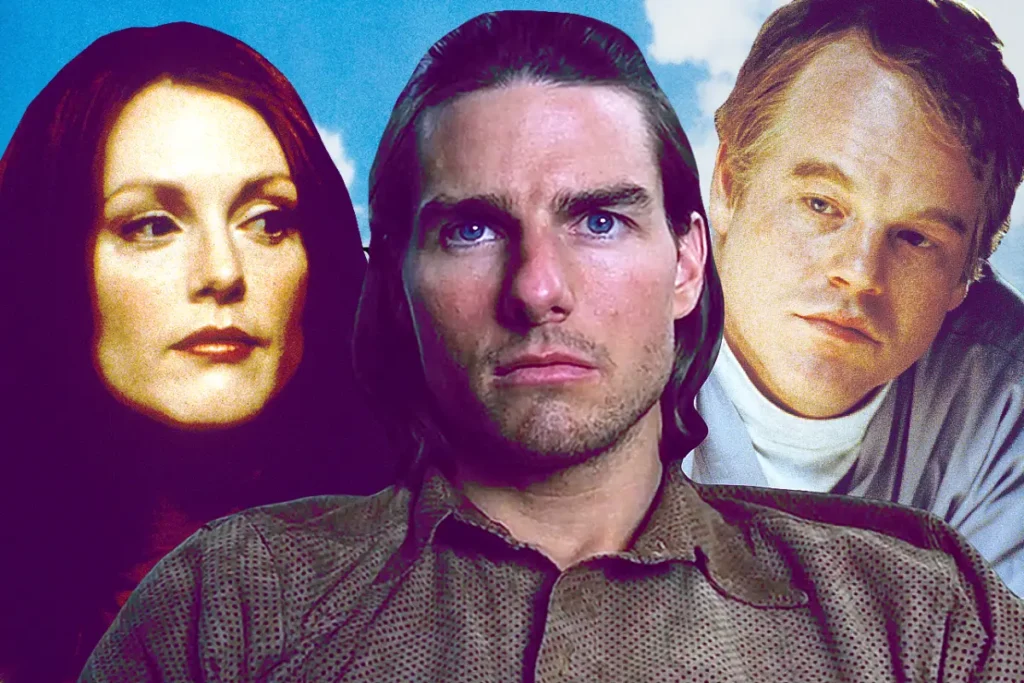
“I possess so much love to share. I just can’t figure out where to direct it.” Moore collaborated once more with Paul Thomas Anderson for Magnolia, a complex ensemble piece that may not be as entertaining but is indeed more ambitious. Her performance is raw, tumultuous, and impossible to forget. She plays Linda Partridge, a trophy wife overwhelmed with guilt regarding her terminally ill spouse and her own previous betrayals.
The character reveals herself in ways that are both startling and profoundly human. Her scenes are a whirlwind of emotions: sorrow, anger, hopelessness, and shame crashing together in real time. There’s no pretense in her performance just boldness and rawness. This sweeping narrative features characters on the brink, with Moore perhaps being the most affected.
Her speech in the pharmacy showcases her ability to implode emotionally, and her concluding scenes are so starkly revealing that they can be difficult to watch. Ultimately, Magnolia explores the universal suffering of existence, and Moore ensures that we experience every moment of Linda’s intimate collapse.
2. ‘Children of Men’ (2006)

“You are the sole person capable of bringing the Kee girl.” In Children of Men, a remarkable work by Alfonso Cuarón depicting humanity on the verge of extinction due to widespread infertility, Moore portrays Julian, a revolutionary leader and activist who still clings to hope.
Although her time on-screen is short, it is etched in memory. She bursts into the narrative like a flame in darkness: compelling, principled, and somewhat menacing. The chemistry between her and Clive Owen’s character, Theo, suggests a shared history that adds emotional depth to the plot.
Julian’s sudden departure from the film is unexpected, yet her influence remains, like a guiding spirit lingering over the ambiguous universe she leaves behind. In this role, Moore maximizes her limited screen time, providing Julian with remarkable complexity. She is not there to save humanity but to ignite the spark. In a film showcasing the dwindling traces of human morality, Moore stands out as one of its final true optimists.
3. ‘Boogie Nights’ (1997)
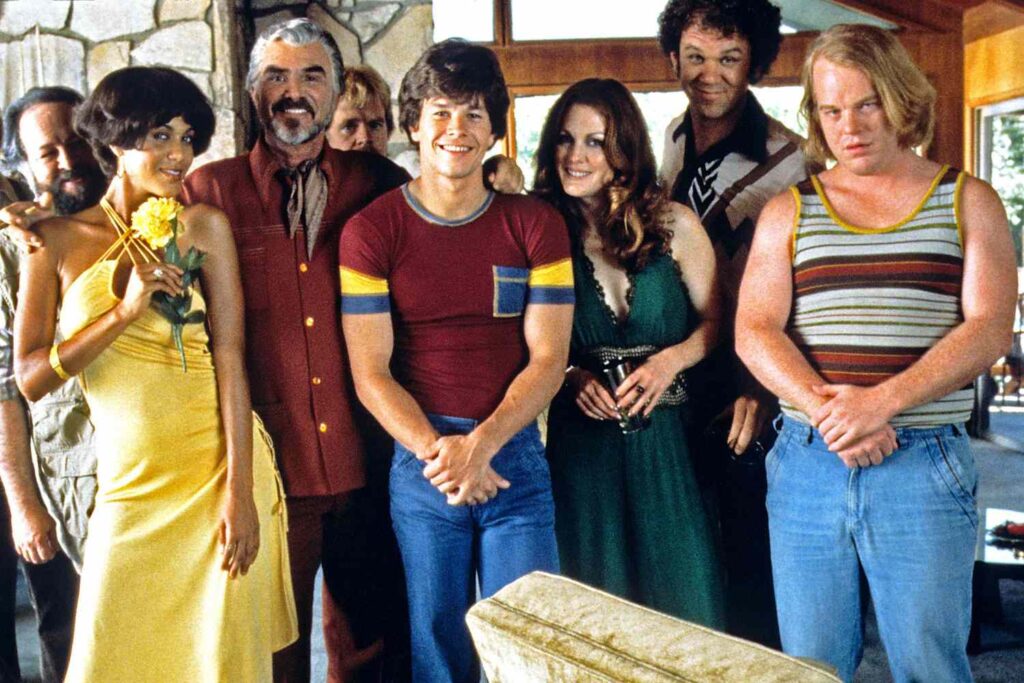
Moore portrays Amber Waves, a porn star and surrogate mother to a mismatched group of adult film outcasts. She embodies a mix of glamour, nurturing instincts, vulnerability, and fragility. Moore depicts her character as someone eager to care for others, having lost the ability to care for herself. She recognizes the makeshift family these individuals are attempting to create and the personal tragedies they cannot escape.
The actress infuses each scene with a blend of warmth and melancholy, transforming what could have been a mere satire into a profound character exploration. Her dynamic with Mark Wahlberg’s Dirk Diggler is both ludicrous and emotionally resonant, and her courtroom scene where she advocates for custody of her son is deeply affecting. Moore’s performance stands out as one of the more subdued yet poignant aspects. The film itself remains outstanding, a true highlight of the 1990s.
4. ‘The Hours’ (2002)
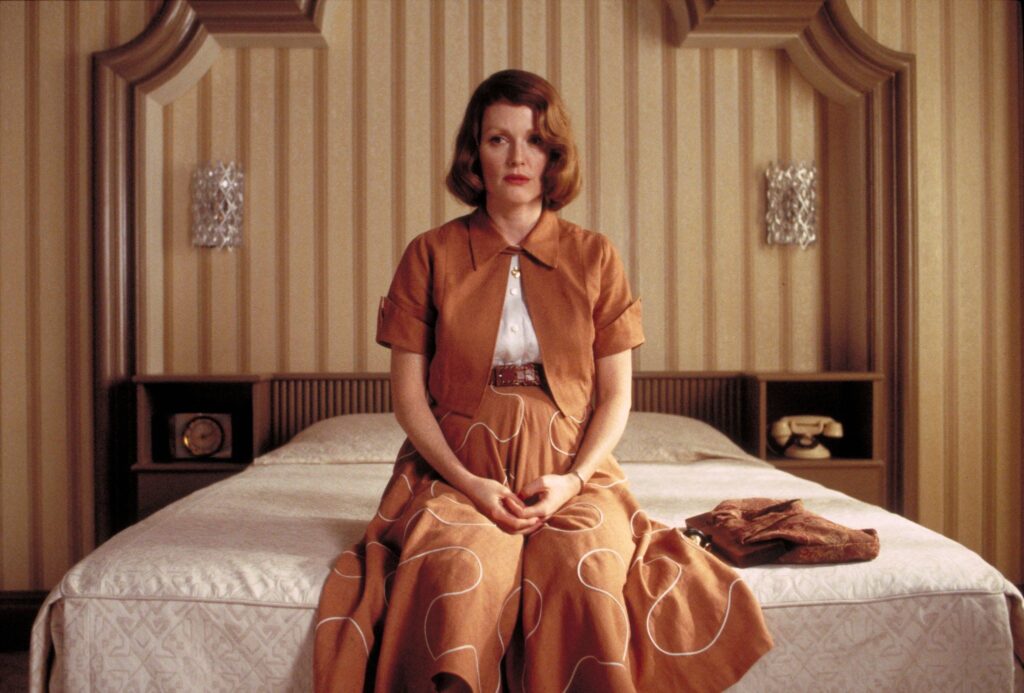
“It would be delightful to claim that you felt remorse. That would be simple. But what does it signify?” In The Hours, Moore channels a sentiment reminiscent of Far from Heaven. In this narrative, she portrays a 1950s homemaker named Laura Brown, who feels suffocated by the ideals of domesticity. Enclosed in a pastel cage of societal expectations, Laura delves into Mrs.
Dalloway and begins to consider her escape not from her marriage, but from her existence. Moore embodies her like a specter within an exquisite frame, merely grazing the surfaces of her surroundings. The film weaves Laura’s journey together with those of Nicole Kidman’s Virginia Woolf and Meryl Streep’s contemporary Clarissa, creating a triptych reflecting themes of desire and grief.
Kidman and Streep deliver performances that are predictably excellent. Moore’s part is perhaps the most subdued, yet it resonates the longest. Her decisions resonate through the ages, and her smile tight, frightened, and transient conveys more than a multitude of spoken words could express.
5. ‘Still Alice’ (2014)
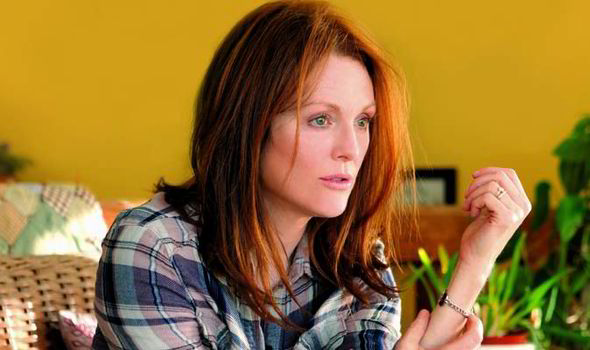
“I am not in pain. I am fighting.” Moore finally received her long-deserved Oscar for Still Alice, a poignant and heart-wrenching depiction of a woman facing early-onset Alzheimer’s. She portrays Dr. Alice Howland, a linguistics educator whose reality begins to fracture gradually and frighteningly. The film’s tragedy lies not only in Alice’s lost memories but also in her awareness of what she is forgetting.
A lesser actor might have opted for dramatic excess, yet Moore remains composed and rational. She presents a sincere and emotionally precise portrayal, capturing the dignity of an extraordinary intellect striving to remain alive as her mental clarity fades. The screenplay avoids relying on clichés, depicting a woman who cherishes her family, fears being a burden, and fights to maintain her identity even as it begins to escape her. Moore finds beauty in disarray, sorrow in silence, and bravery in acknowledging her fears.
6. ‘Far from Heaven’ (2002)
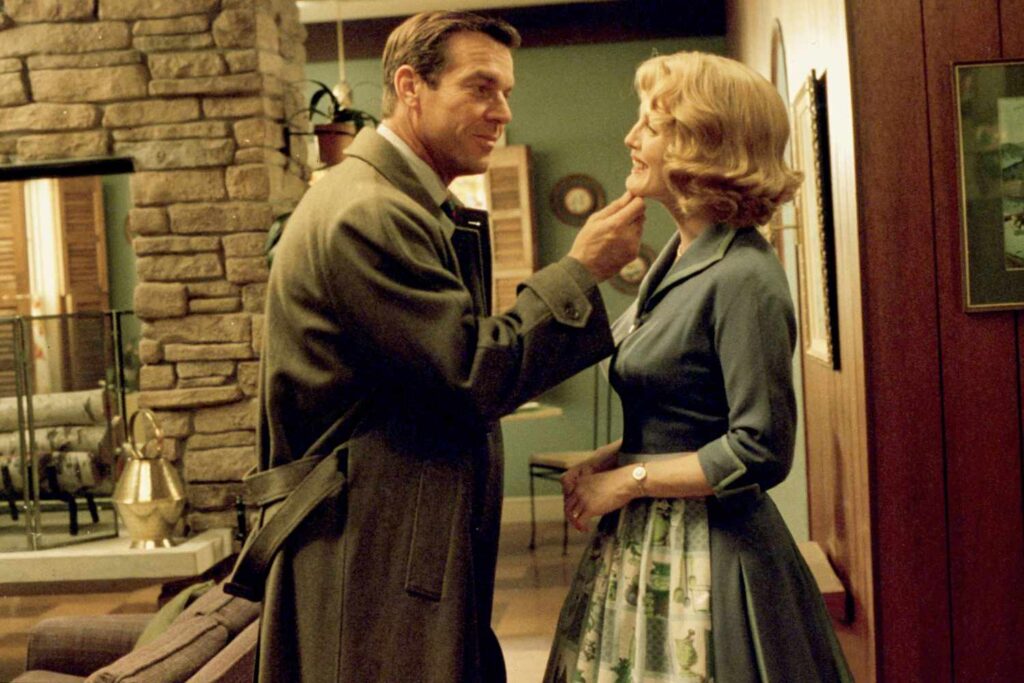
“I never understood what it felt like to be truly seen.” In Far from Heaven, Haynes reinterprets a 1950s melodrama through a contemporary lens, delivering one of Moore’s finest performances. She plays Cathy Whitaker, a homemaker whose life starts to disintegrate upon uncovering her husband’s (Dennis Quaid) hidden sexuality and her developing illicit friendship with her Black gardener (Dennis Haysbert).
The film echoes the visual and emotional vernacular of 1950s director Douglas Sirk, employing vibrant colors, sophisticated shot composition, and the repressed emotions simmering just below the surface. Moore’s performance is both exact and abundant, her every smile strained and each pause pregnant with unspeakable sorrow.
Haynes and Moore manage to make the past feel intensely immediate, unveiling the cultural decay that lies beneath the pastel facade of mid-century America. The film is astute both in its themes and storytelling, serving not only as a tribute but also as a reimagining. It adopts the aesthetic of 1950s cinema while revealing the harsh realities of that era
7. ‘The End of the Affair’ (1999)
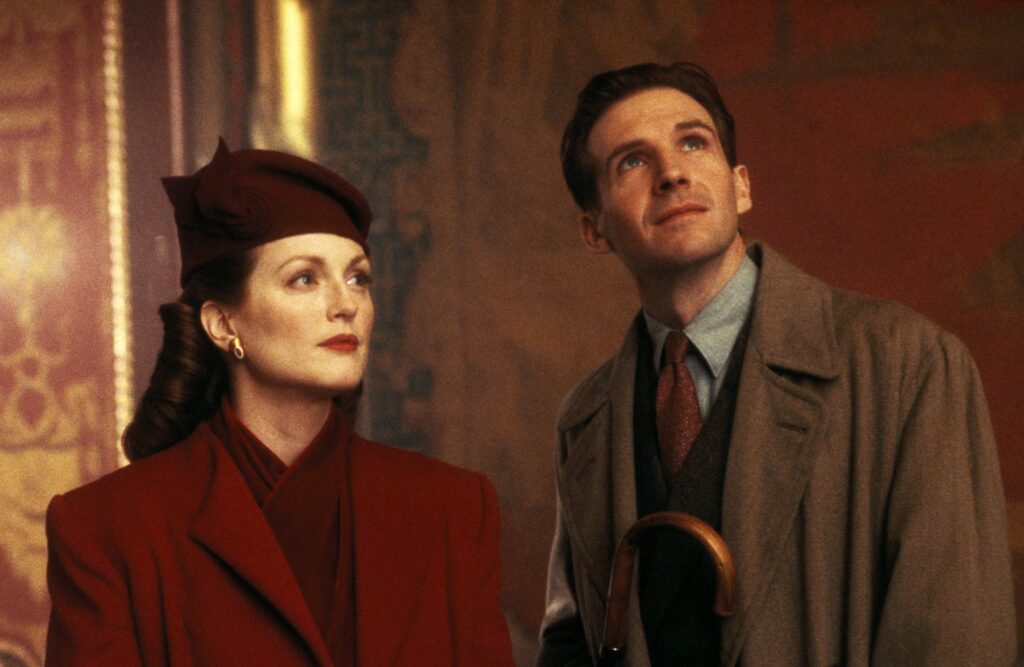
Moore delivers a performance that rightfully earned her an Oscar nomination. The film, a poignant and sensual adaptation of Graham Greene’s novel, features her as Sarah Miles, caught in a love triangle with her husband (Stephen Rea) and a brooding writer (Ralph Fiennes) in the aftermath of World War II.
However, this story transcends mere forbidden romance; it transforms into a spiritual tragedy, exploring themes of jealousy, loss, and the profound nature of grace. Moore navigates the complex emotions of passion and guilt with a subtle finesse. Her gaze is filled with a haunting quality, as if she is already grieving something that still exists.
She is caught between love and duty, rebellion and acceptance, and this inner turmoil is expressed through her slightest movements and facial expressions. The film’s visual storytelling enhances this emotional depth, with Neil Jordan’s direction featuring rich, shadowy cinematography, interspersed with flashbacks, voiceovers, and poignant, rain-drenched moments of desire.
8. ‘Safe’ (1995)
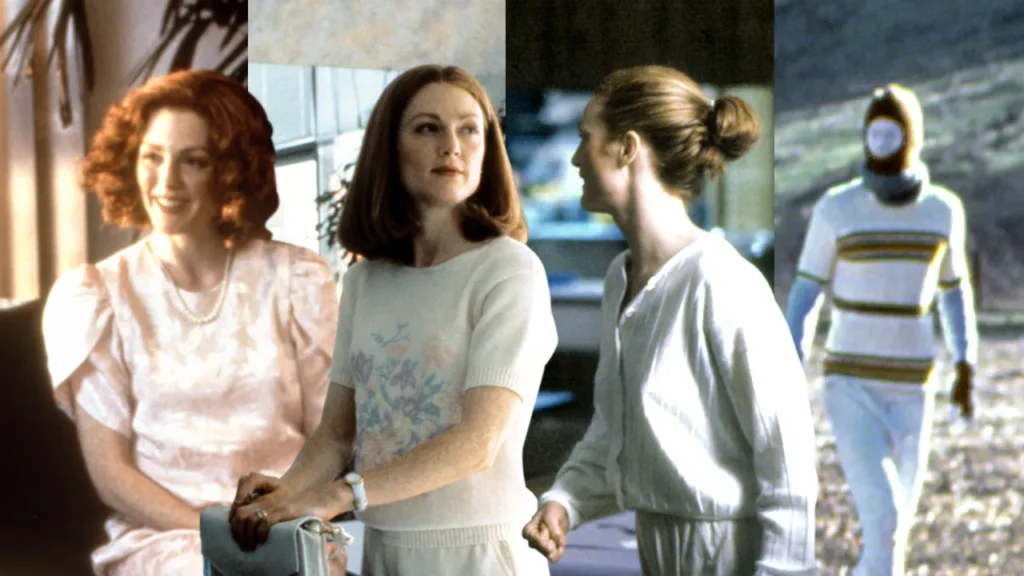
“I have no idea what’s the matter with me.” Safe is a psychological thriller that lacks monsters, instead showcasing feelings of fear, illness, and entrapment. Moore portrays Carol White, a housewife living in the suburbs who begins to suffer from unexplained allergic reactions to the contemporary environment: pollutants, scents, and noise.
What starts off as a puzzling health issue transforms into a profound existential crisis. Is she genuinely unwell, or is her surroundings gradually harming her? Moore’s performance is both unsettling and impactful, presenting a portrayal of repression, bewilderment, and empty terror. She rarely raises her voice, seldom asserts herself, and almost disappears until her body starts crying out for attention.
Todd Haynes captures every moment with clinical precision, while Moore, in one of her early leading roles, makes vulnerability feel terrifying. She doesn’t have a spectacular breakdown; instead, she slowly diminishes. Together, they created one of Haynes’ most powerful works, a quietly groundbreaking film that comments on the unseen toxins of contemporary existence. The duo would later collaborate multiple times.
9. ‘The Kids Are All Right’ (2010)
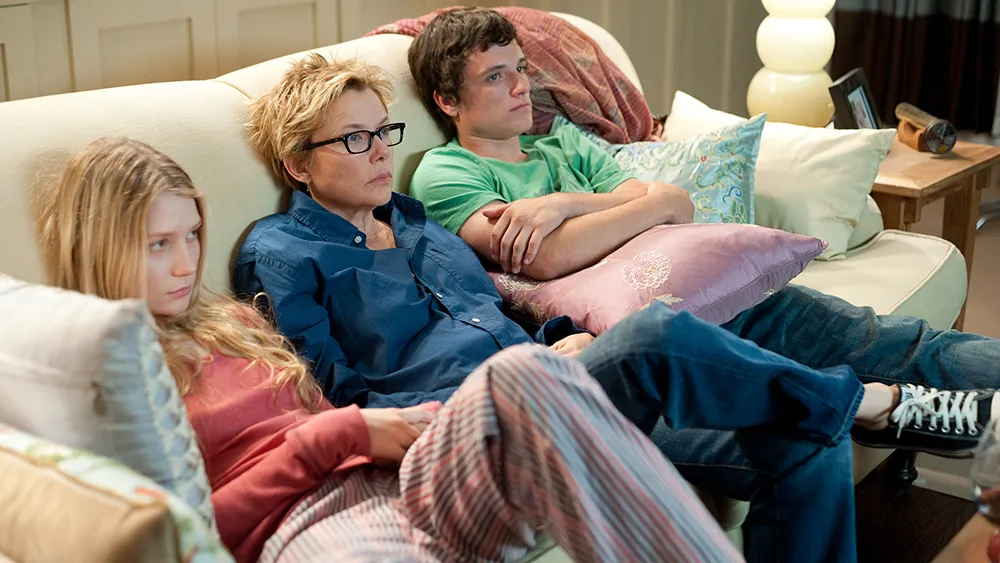
“If one more person tells me that marriage is difficult, I think I’ll be sick.” In this touching yet poignant family drama, Moore embodies Jules, a woman raising two teenagers alongside her spouse (Annette Bening). When their kids (portrayed by Mia Wasikowska and Josh Hutcherson) seek out their sperm donor dad (Mark Ruffalo), the family dynamics unravel in both painful and humorous, entirely relatable ways.
Moore’s depiction of Jules is flawed, spontaneous, open emotionally, and profoundly uncertain, as she longs to be acknowledged, cherished, and valued yet often sabotages her own wishes. The actress imparts a chaotic elegance to the character, expertly balancing between vulnerability and self-interest with remarkable sincerity.
The film avoids labeling her as simply “the cheater” or “the mother.” She is always more intricate than such definitions. The direction by Lisa Cholodenko and the sharp, Oscar-nominated screenplay provide a platform for Moore’s nuanced artistry, making this one of her most genuinely heartfelt performances.
10. ‘Gloria Bell’ (2018)
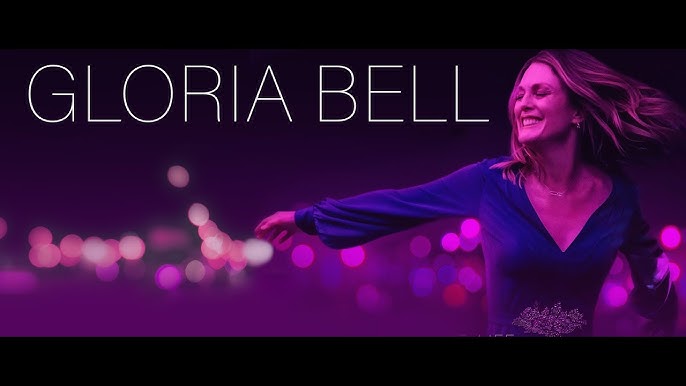
“I’m merely a woman, you see. You’re a man. We live, we die. Life goes on.” Moore excels in Gloria Bell, a depiction of midlife solitude that never plays for sympathy. A remake of director Sebastián Lelio’s Chilean film Gloria, it explores the minor joys and quiet humiliations of a divorcee dealing with dating, family, and her own identity in Los Angeles. Moore approaches the character with warmth and caution.
Even when the film maintains a gentle tone, her acting remains daring. She sings along to soft rock hits in her vehicle, mingles with strangers at parties, sheds tears in the restroom, and manages to pull herself together once more. Moore transforms a role that could have been trivial into something both resilient and authentic. Some questioned the need for a remake, but it did allow Moore to infuse her own essence into the character. She doesn’t just dominate the screen; she truly becomes a part of it.





